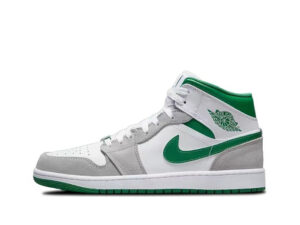The resale market for Air Jordans has experienced notable evolution in recent years, influenced by various factors including limited releases, collaborations, celebrity endorsements, and changes in consumer behavior.
Here are some key trends and developments in the resale market for Air Jordans:
- High Demand for Limited Releases:
- Limited-edition releases, particularly those with scarcity and exclusivity, continue to drive high demand in the resale market. Sneaker enthusiasts often seek out rare Air Jordans, leading to increased resale prices.
- Collaborations and Partnerships:
- Collaborations with high-profile designers, artists, and celebrities contribute significantly to the resale market. Limited-edition collaborations generate hype, and their exclusivity often results in elevated resale values.
- Social Media Influence:
- The influence of social media platforms, such as Instagram, Twitter, and sneaker-specific marketplaces, has grown. Sneakerheads and resellers use these platforms to showcase inventory, create hype, and connect with buyers, impacting resale prices.
- Influencer Marketing and Endorsements:
- Endorsements from influencers and celebrities play a crucial role in driving demand and resale values. When a notable figure is associated with a particular Air Jordan release, it can significantly impact the market dynamics.
- Platform Growth:
- Dedicated sneaker resale platforms, such as StockX, GOAT, and Stadium Goods, have gained prominence. These platforms provide a transparent marketplace with authentication services, contributing to increased confidence among buyers and sellers.
- Shift in Consumer Behavior:
- The rise of sneaker culture and the acceptance of sneakers as fashion items have led to a shift in consumer behavior. Many buyers and collectors now view limited-edition Air Jordans as investments and status symbols, influencing the resale market.
- Emphasis on Deadstock Condition:
- The resale market places a premium on deadstock (brand-new, unworn) condition. China AIR JORDAN suppliers Collectors and buyers often seek Air Jordans in pristine condition, contributing to the notion of sneakers as collectible items.
- Retro Releases and Nostalgia:
- Retro releases, where classic Air Jordan models are reissued, contribute to nostalgia-driven demand. Buyers often seek out iconic releases from the past, and the resale market responds to this demand for vintage or retro styles.
- Globalization of Sneaker Culture:
- Sneaker culture has become a global phenomenon, with enthusiasts and resellers participating from various regions. Global demand can impact resale prices, with buyers willing to pay a premium for access to limited releases.
- Brand Strategies:
- Jordan Brand’s strategic approach to releases, including surprise drops, storytelling, and strategic collaborations, affects the resale market. Innovative marketing and storytelling contribute to increased hype and demand.
- Secondary Market Impact on Retail Strategies:
- The resale market has influenced how brands approach retail strategies. Brands may create scarcity intentionally, recognizing the impact it can have on the secondary market and overall brand perception.
- Regulatory Scrutiny:
- The growing importance of the resale market has drawn regulatory scrutiny, with concerns about fairness, authenticity, and consumer protection. This scrutiny may impact how resale platforms operate and how brands release products.
It’s important to note that the resale market for Air Jordans is dynamic, and trends can shift based on various factors. As the sneaker industry continues to evolve, the resale market is likely to see further developments influenced by changing consumer preferences, brand strategies, and market dynamics.
